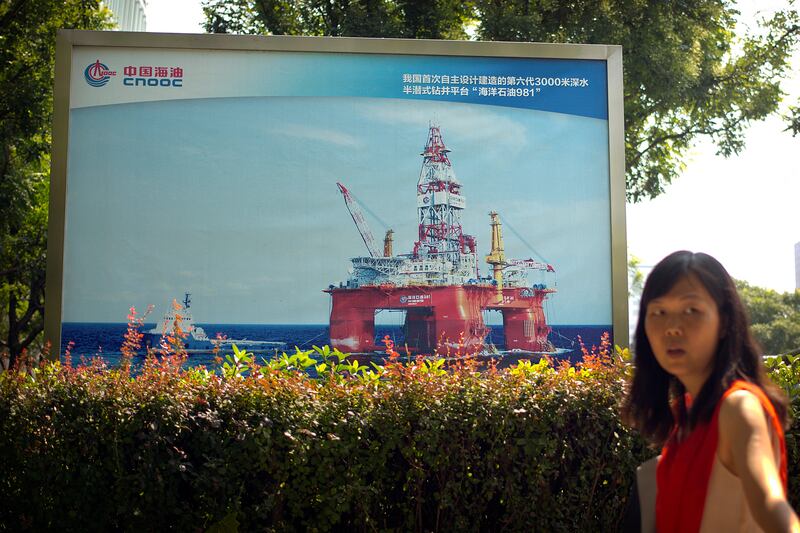The willingness of Malaysia and the Philippines to discuss oil and gas exploration with China in the South China Sea may cause friction within ASEAN as the bloc tries to accelerate Code of Conduct negotiations to avoid conflict, analysts say.
The Philippines said Tuesday that Manila would resume talks with Beijing on joint exploration for oil and gas in the strategic waterway, despite the country's Supreme Court having ruled against such activities.
In January, the court decided that a trilateral joint exploration deal between the Philippines, China and Vietnam – another party in the South China Sea dispute – was unconstitutional because it allowed “foreign corporations to participate in the exploration of the country’s natural resources” without observing required safeguards.
The agreement was signed in 2005 but failed to materialize.
In 2018, under then-President Rodrigo Duterte, the Philippines and China also signed a document on Cooperation on Oil and Gas Development but Duterte himself terminated the talks last year after both sides failed to resolve the issue of sovereignty over Reed Bank in the Spratly Islands.
Meanwhile in Beijing this week, Malaysian Prime Minister Anwar Ibrahim informed Chinese President Xi Jinping that Malaysia needed to carry on with oil exploration in waters that both countries claim, but "if the condition is that there must be negotiations to secure [our rights], then we are prepared to negotiate."
The next day the prime minister seemed to adjust his conciliatory tone by telling Parliament that he had “insisted that the area … falls within Malaysia’s territory” and that “in the meantime our exploration efforts will continue.”
China’s ‘burgeoning leverage’
Some other ASEAN countries that are also embroiled in disagreements with China over natural resources in the South China Sea – Vietnam and Indonesia – have yet to react to the latest developments but analysts warned against what they see as “China’s bilateral approach.”
“Xi Jinping has used official state visits by President Marcos Jr. of the Philippines in January and Prime Minister Anwar Ibrahim in April to press China’s claims in the South China Sea and to press for bilateral discussions,” said Carlyle Thayer, a veteran regional specialist.
“China’s insistence on bilateral discussions has been consistent for the last decade and a half,” the Canberra-based analyst told Radio Free Asia (RFA), adding that China can “divide and conquer” using its superior economic weight.

Another analyst, Collins Chong Yew Keat at the University of Malaya, told BenarNews that the scope and level of the negotiations remains to be seen “but it must not be based on a bilateral basis, as Beijing will exercise its burgeoning leverage and cards at its disposal now, to use economic tools and other measures to dictate more favorable terms.”
ASEAN countries restarted negotiations with China on a Code of Conduct for the South China Sea, with the first round of talks taking place in the second week of March.
Several member states have accused China of impeding and harassing their oil and gas activities in areas within their exclusive economic zones that also fall within China’s nine-dash line that Beijing uses to claim “historic rights” to almost 90% of the South China Sea.
In 2016, this imaginary boundary was declared as illegal by a U.N. tribunal in a case brought by the Philippines.
“Indonesia has a long-standing policy of refusing to discuss maritime disputes with China on the grounds that its maritime boundaries are in accord with international law,” said Carl Thayer.
‘Not an indication of success’
Vietnam, which saw several oil development projects with foreign partners stopped under China’s pressure, has always maintained that any joint exploration should abide by international law, especially the U.N. Convention on the Law of the Sea (UNCLOS).
As a rule, Hanoi does not publicly criticize other ASEAN members’ policies but, according to Vietnamese scholars, Beijing-led joint projects in the South China Sea could become “dangerous precedents” if pursued.
China has been offering other countries to "set aside dispute and pursue joint development," viewing it "as a measure to assert sovereignty in the negotiated area," wrote a Vietnamese researcher, Bui Sang Minh, in the South China Sea Studies Journal, which usually reflects the Vietnamese government's stance.
“Most of the areas in which China has brought up such offers are well within other countries’ economic exclusive zones and continental shelves.”

As the Philippines and China are to resume talks, Manila should “try not to fall for the ‘setting disputes aside and pursuing joint development’ concept and refrain from prioritizing economic benefits over maintaining its sovereignty in the process,” Minh added.
Some other analysts such as Jay Batongbacal, director of the Institute for Maritime Affairs and Law of the Sea at the University of the Philippines, said that a desire to settle disputes amicably “does not mean they will simply give in to China’s demands.”
“An announcement that they will discuss and negotiate is not an indication of success in the bilateral approach,” he said.
Meanwhile, Carl Thayer told RFA that in his opinion, “China’s bilateral approach is not without risk.”
The Philippine Constitution limits the involvement of foreign enterprises in the exploitation of the Philippines’ natural resources so a joint exploration would risk setting up “a clash between Philippines sovereignty and China’s assertion of sovereignty.”
“A second risk for China is that the commencement of bilateral talks is likely to provoke nationalist sentiment in both the Philippines and Malaysia to demand that China respect the Philippines’ and Malaysian Exclusive Economic Zones,” the maritime expert said.
Gan Pei Ling and Iman Muttaqin Yusof for BenarNews contributed from Kuala Lumpur to this report. It was co-produced with Radio Free Asia, a news service affiliated with BenarNews.
